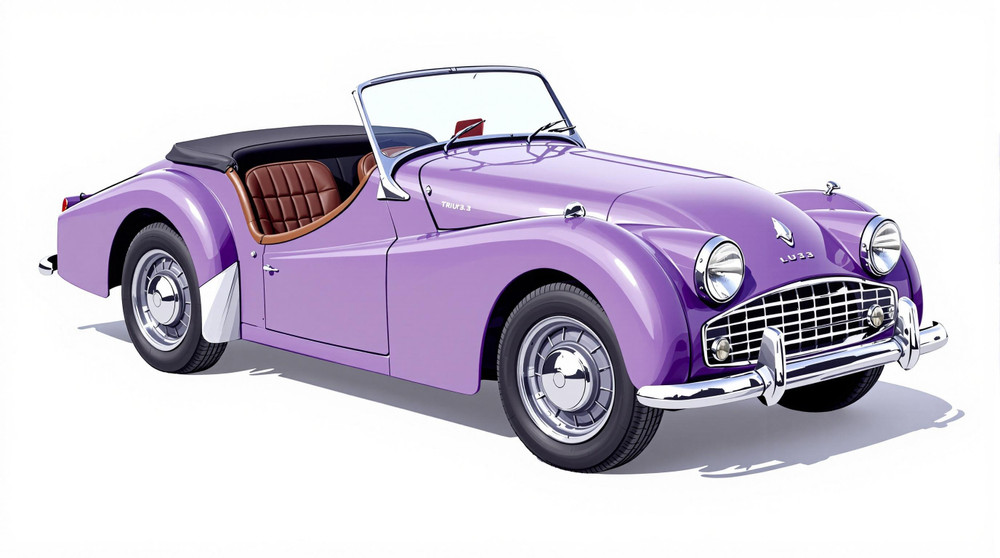Image of 1955 Triumph Tr3, Note: These illustrations use artistic license and may differ from actual historical models.
Performance Metrics
Fundamental Metrics
Emotional Appeal
MMP Rating
| Engine Specifications | |
|---|---|
| Engine: | Inline 4 |
| Displacement: | 1991 cc |
| Horsepower: | 95-100 hp |
| Torque: | 117 lb-ft |
| Compression Ratio: | 8.5:1 |
| Ignition System: | Coil and distributor |
| Cooling System: | Water-cooled |
| Performance Specifications | |
| 0-60 Time: | 10.8 seconds |
| 1/4 Mile Time: | Estimated 17.5 seconds |
| Top Speed: | 105 mph |
| Transmission and Drive | |
| Drive Type: | Rear-wheel drive |
| Transmission Type: | 4-speed manual |
| Fuel and Efficiency | |
| Fuel System Type: | Twin SU carburetors |
| MPG: | 25-30 mpg |
| Dimensions and Brakes | |
| Brakes: | Front disc, rear drum |
| Wheelbase: | 88 inches |
| Weight: | 2,200 lbs |
Note: Specifications for classic cars are given to the best of our ability, considering the limited and variant data available.
Unveiling the Quintessential British Roadster: The 1955 Triumph TR3
The 1955 Triumph TR3 roared onto the scene with a blend of British charm and sporting prowess, quickly becoming an emblem of post-war automotive exuberance. Crafted by the Standard Motor Company in the United Kingdom, this vehicle was more than just a mode of transportation; it was a statement of resilience and innovation during a time when the world was rebuilding itself. Notably, the TR3 was one of the first production cars to include standard front disc brakes, a feature that would later become universal in the automotive industry.
Design and Innovation
The Triumph TR3's exterior styling was a harmonious blend of form and function. Its long bonnet, distinctive grille, and cutaway door design gave it an aggressive yet elegant appearance. Inside, the TR3 presented a no-frills cockpit focused on driving pleasure with leather seats and a layout that put all controls within easy reach of the driver. The quality of materials used reflected the era's craftsmanship, with attention to detail that has stood the test of time. Technologically, aside from its pioneering disc brakes, the TR3 featured a four-speed manual transmission with optional overdrive, which was quite advanced for its day. Color options ranged from Signal Red to Powder Blue, with British Racing Green being among the most popular choices for enthusiasts. The roadster body style was iconic, though a rare coupé version known as the "TR3B" is highly sought after by collectors today.
Historical Significance
The Triumph TR3 left an indelible mark on automotive history through its blend of affordability and performance. It was one of the vehicles that helped establish Britain as a center for sports car production in the post-war era. The TR3's success also paved the way for future Triumph models, influencing their design and engineering.
Performance and Handling
Underneath its sculpted hood lay a robust 2.0-liter inline-four engine capable of propelling the TR3 to a top speed nearing 105 mph—a remarkable feat at the time. Acceleration from 0-60 mph could be achieved in approximately 10.8 seconds. On winding roads or when navigating through uneven terrain, drivers praised the TR3 for its responsive handling and communicative steering. The driving experience was visceral; from the throaty growl of its carbureted engine to the wind rushing past during open-top motoring, it provided an unfiltered connection between car and driver that modern vehicles often struggle to replicate.
Ownership Experience
Owners of the Triumph TR3 used their vehicles for various purposes: as daily drivers, weekend cruisers, or even competitive racers in amateur events. Maintenance and reliability were considered straightforward by classic car standards, making it an accessible entry point for those looking to dive into vintage motoring.
Fun Facts
A few fun facts about this classic: A specially modified TR3 once set a land speed record for cars in its class at Bonneville Salt Flats. Celebrities such as Grace Kelly were known to favor Triumphs, adding to their allure. While some critics pointed out its lack of creature comforts compared to luxury contemporaries, enthusiasts argued that this simplicity only heightened its charm.
Collector's Information
Today, a well-preserved 1955 Triumph TR3 can fetch anywhere from $20,000 to $40,000 depending on condition and provenance. Approximately 13,377 units were produced during its initial run from 1955 to 1957 before being succeeded by later models. As with many classic cars, prices have generally appreciated over time due to increasing scarcity and nostalgia-driven demand.
Conclusion
The 1955 Triumph TR3 is more than just an old sports car; it's a piece of motoring heritage that encapsulates a pivotal moment in automotive history. Its combination of style, performance, and historical significance ensures that it remains coveted by collectors and enthusiasts around the world. Whether on display at a show or navigating back roads on a sunny afternoon, the TR3 continues to turn heads and stir hearts as it did over six decades ago.
1955 Triumph Tr3 Catalog of Parts
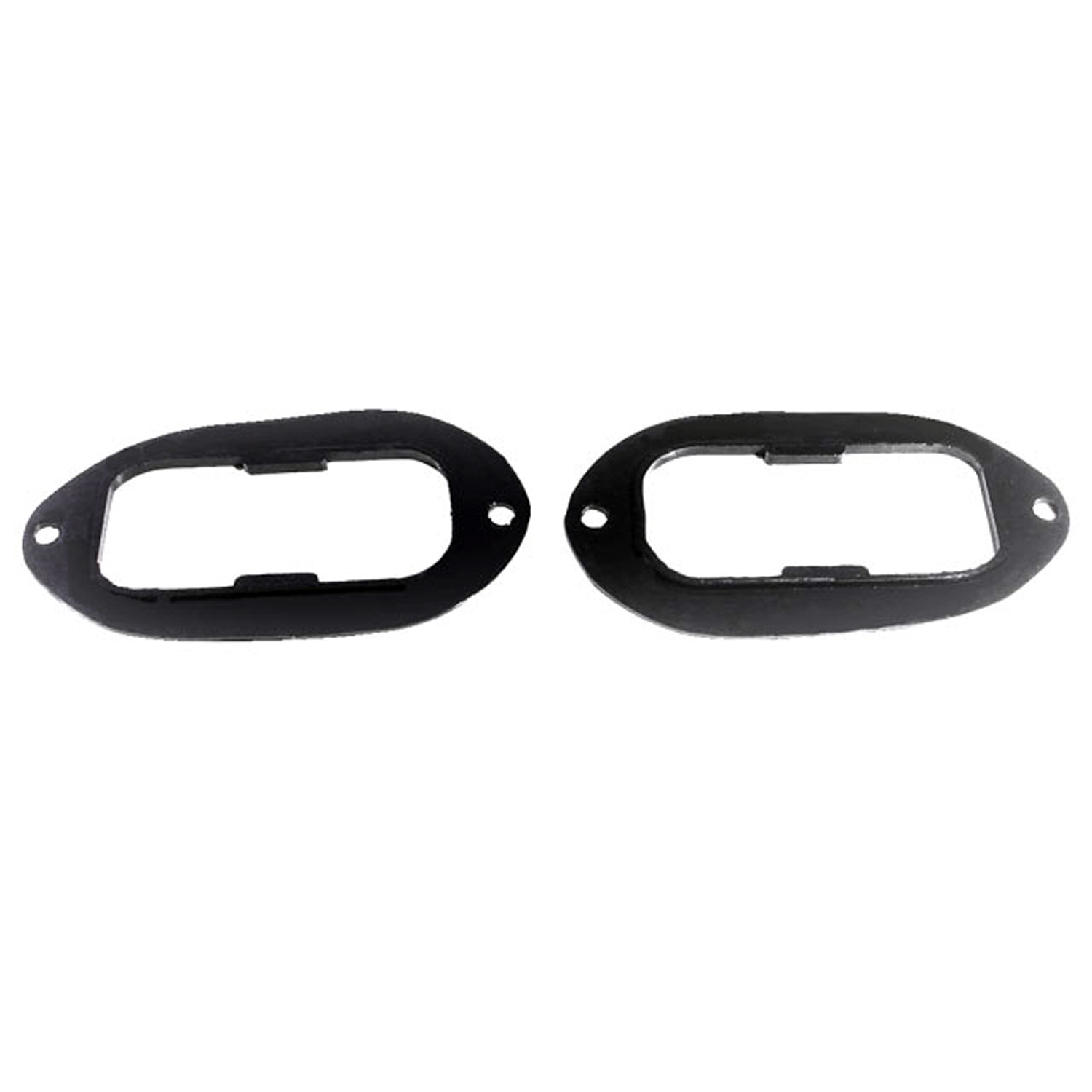 1955 Triumph TR3 Tail-light Lens Gaskets. Pair-LG 3000-140Tail-light Lens Gaskets. Pair
1955 Triumph TR3 Tail-light Lens Gaskets. Pair-LG 3000-140Tail-light Lens Gaskets. Pair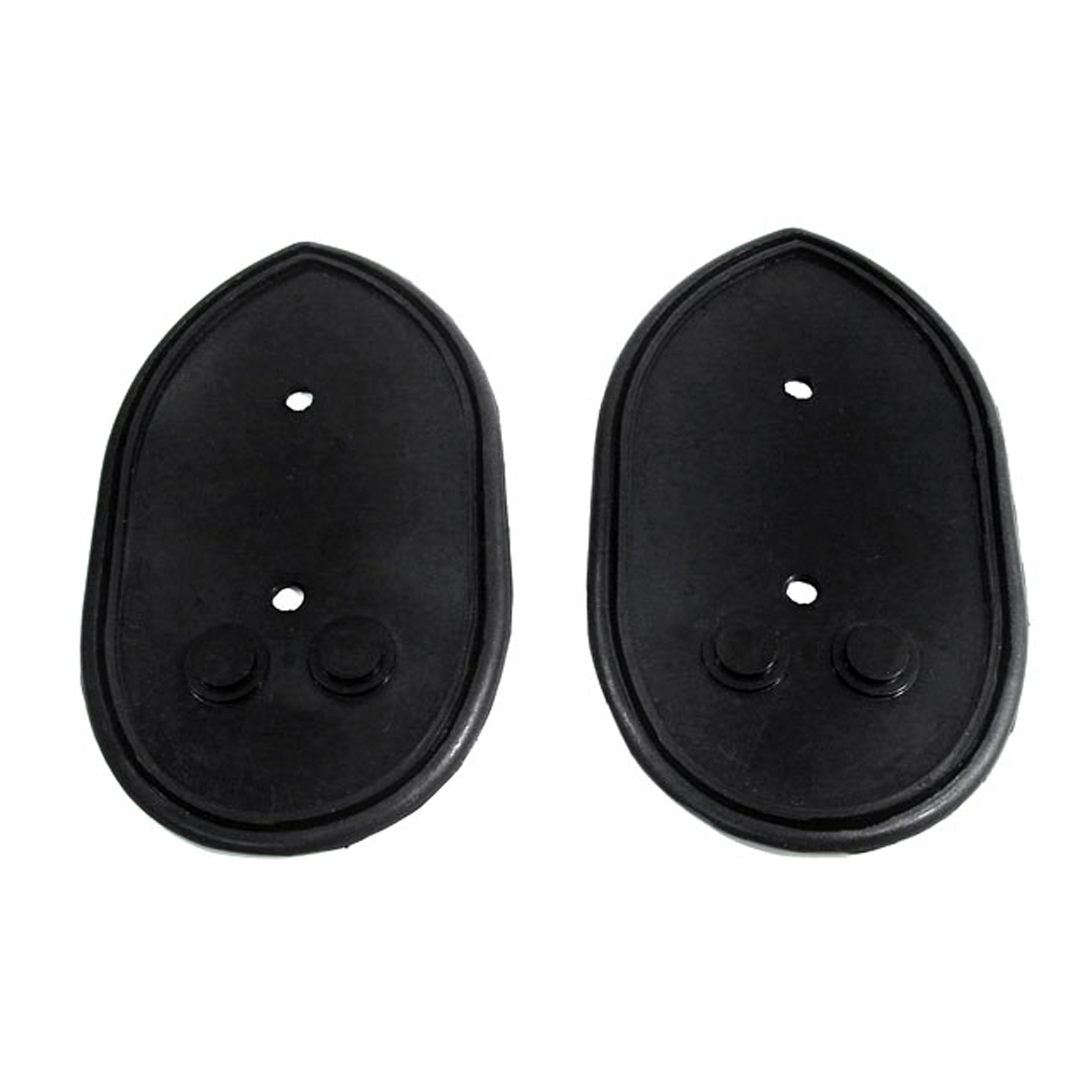 1955 Triumph TR3 Tail-light Pads. 3-1/4" wide X 5-1/2" long. Pair.-MP 999-ATail-light Pads. 3-1/4" wide X 5-1/2" long. Pair.
1955 Triumph TR3 Tail-light Pads. 3-1/4" wide X 5-1/2" long. Pair.-MP 999-ATail-light Pads. 3-1/4" wide X 5-1/2" long. Pair.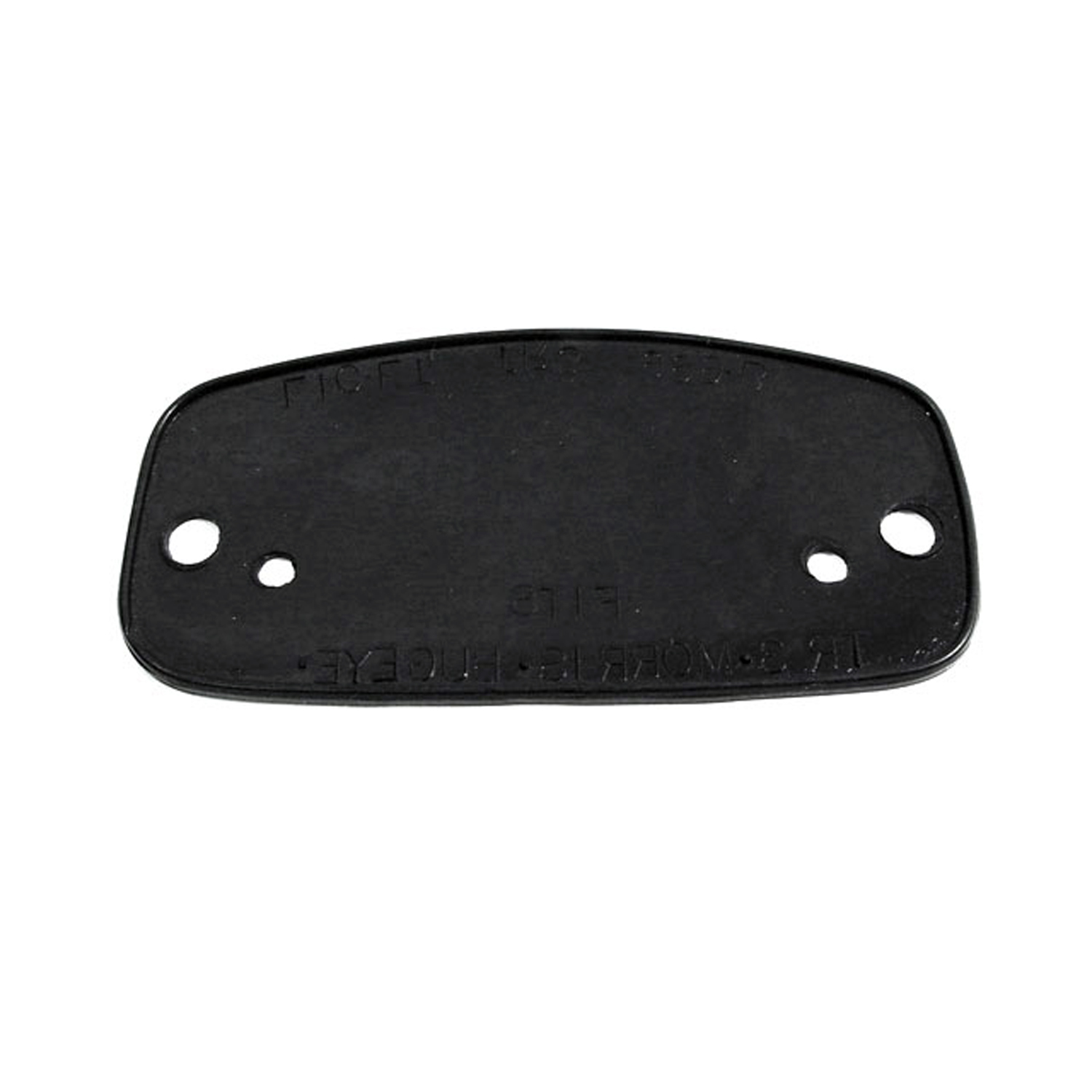 1955 Triumph TR3 License Light Pad. 4-7/8" wide X 2-1/2" long. Each-MP 999-BBLicense Light Pad. 4-7/8" wide X 2-1/2" long. Each
1955 Triumph TR3 License Light Pad. 4-7/8" wide X 2-1/2" long. Each-MP 999-BBLicense Light Pad. 4-7/8" wide X 2-1/2" long. Each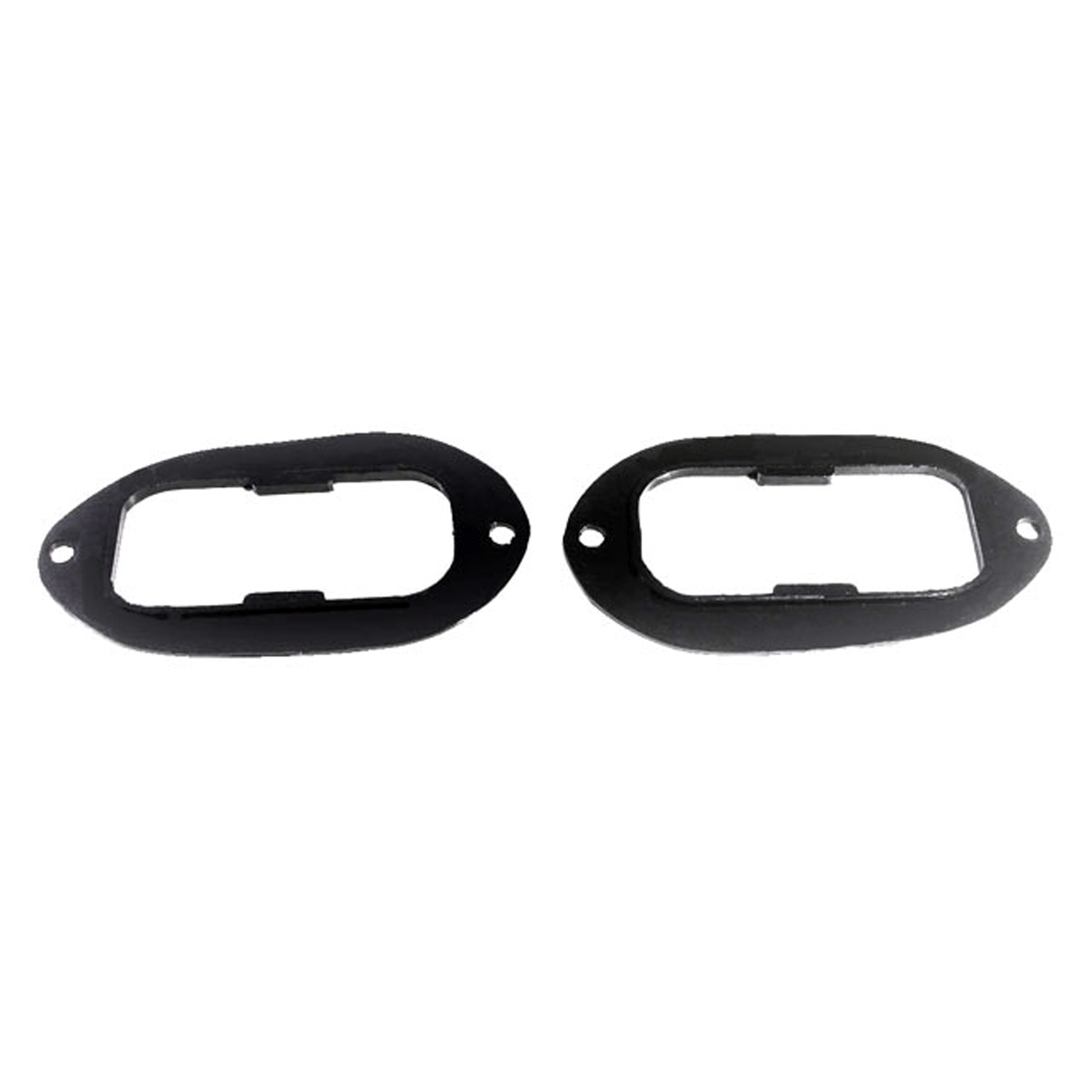 1955 Triumph TR3 Tail-light Lens Seals. Replaces OEM #574634-MP 999-DTail-light Lens Seals. Replaces OEM #574634. 2-1/2" wide X 4-7/8" long. Pair
1955 Triumph TR3 Tail-light Lens Seals. Replaces OEM #574634-MP 999-DTail-light Lens Seals. Replaces OEM #574634. 2-1/2" wide X 4-7/8" long. Pair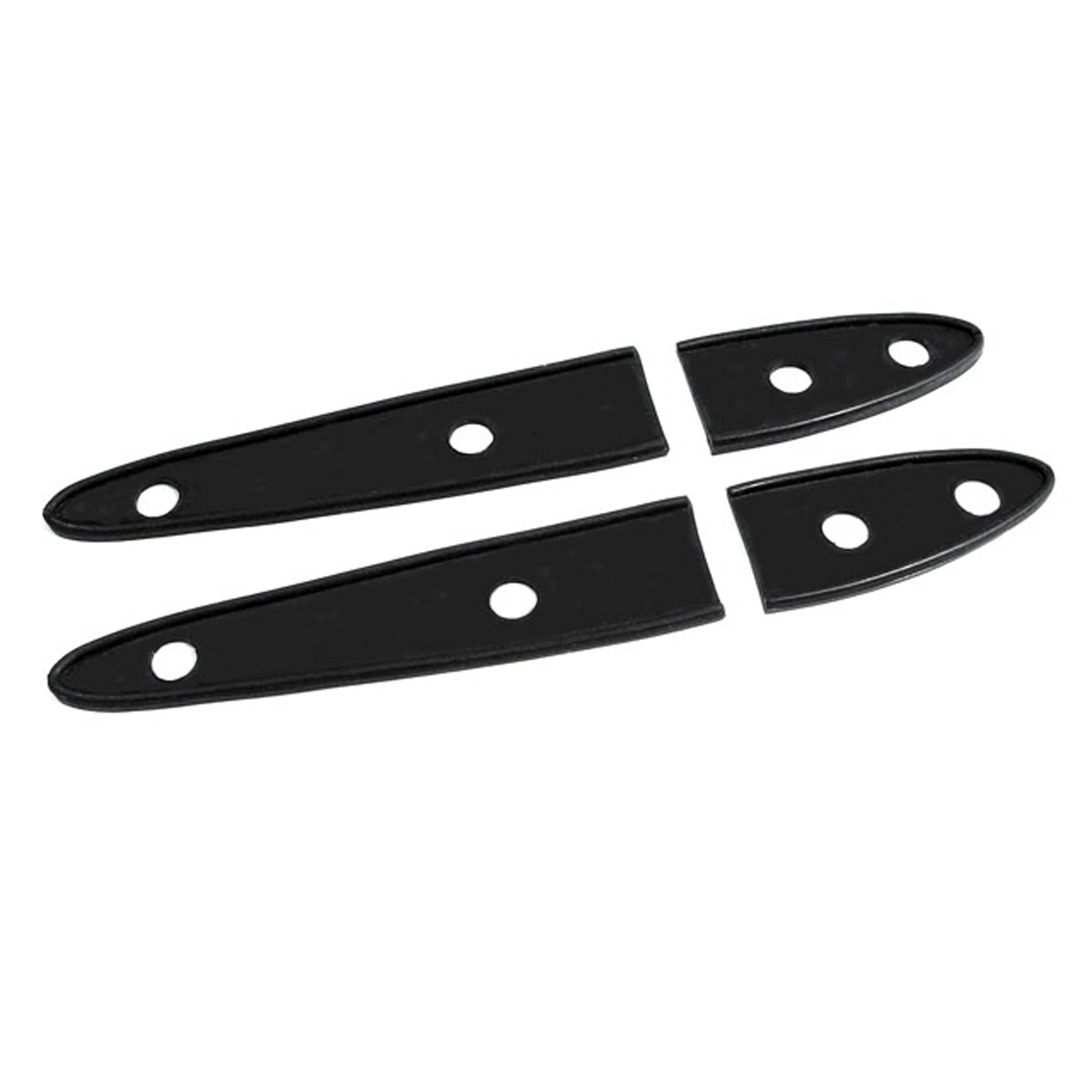 1955 Triumph TR3 Trunk Hinge Pads. 1-1/8" X 7" long. Set-MP 999-EETrunk Hinge Pads. 1-1/8" X 7" long. Set
1955 Triumph TR3 Trunk Hinge Pads. 1-1/8" X 7" long. Set-MP 999-EETrunk Hinge Pads. 1-1/8" X 7" long. Set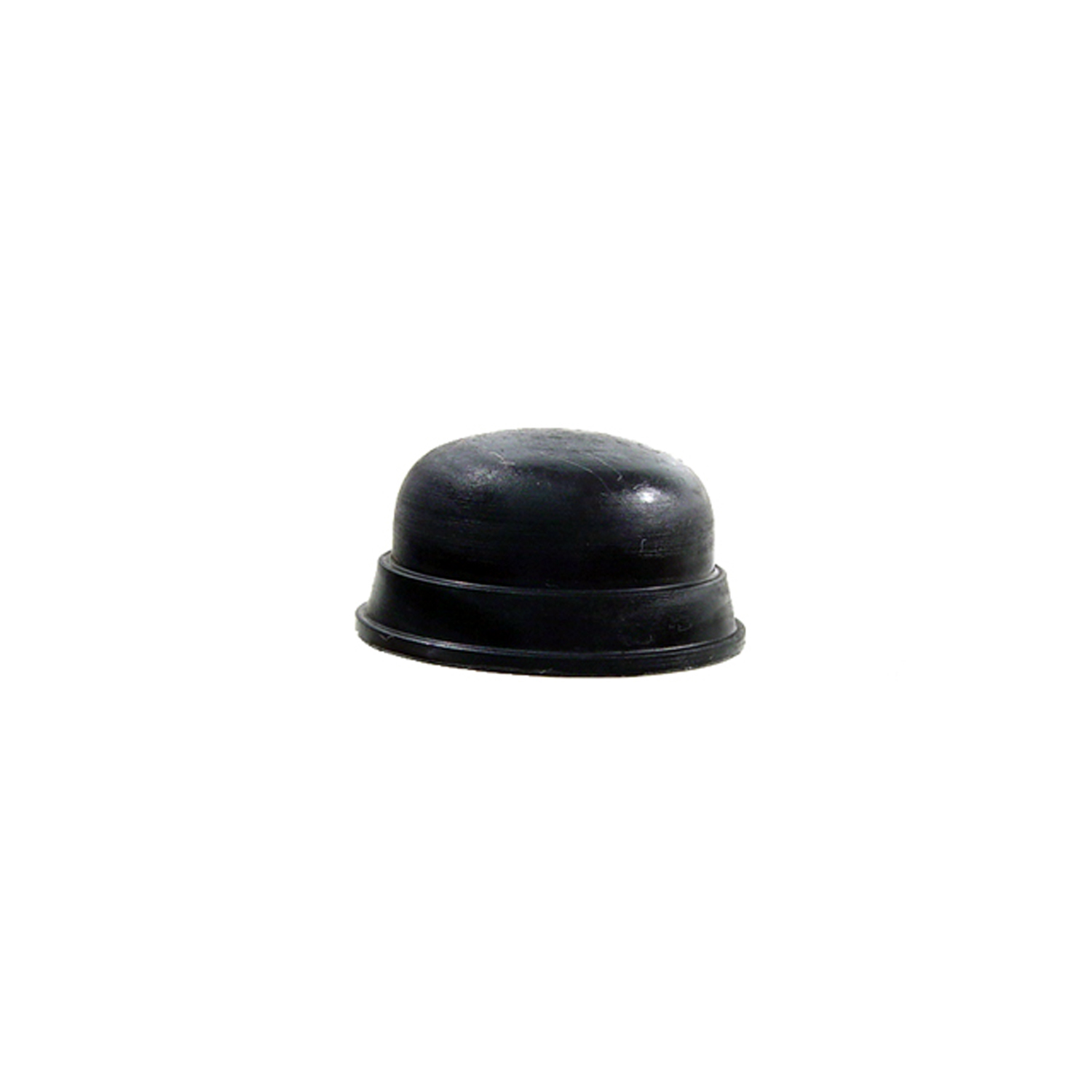 1955 Triumph TR3 Starter Solenoid Button Cover. Perfect reproduction. Each-RP 1Starter Solenoid Button Cover. Perfect reproduction. Each
1955 Triumph TR3 Starter Solenoid Button Cover. Perfect reproduction. Each-RP 1Starter Solenoid Button Cover. Perfect reproduction. Each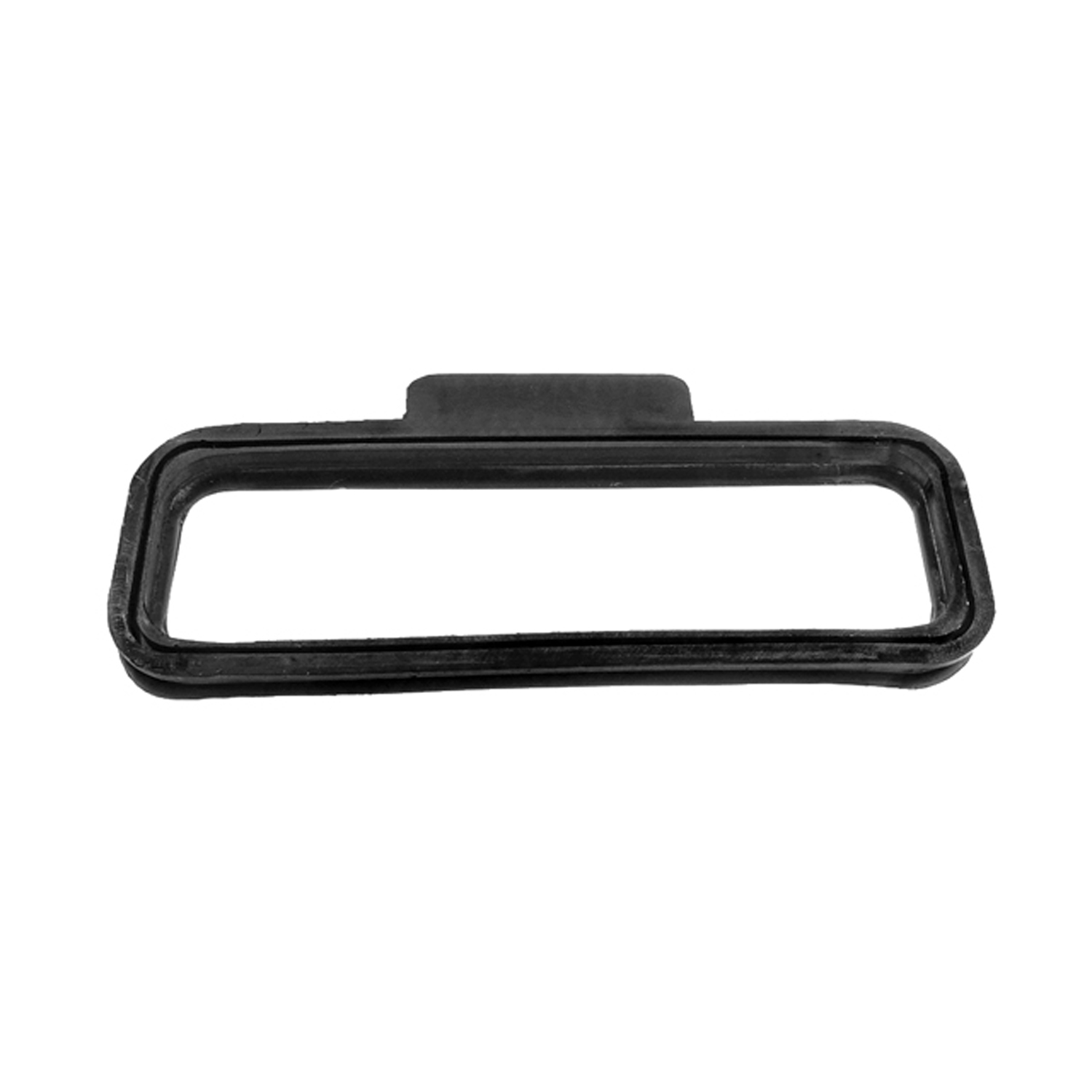 1955 Triumph TR3 Cowl Vent Seal-RP 100-ACowl Vent Seal. 2-1/2" wide X 7" long, with a 5/8" wide X 2-7/16" long projecting tab. Each
1955 Triumph TR3 Cowl Vent Seal-RP 100-ACowl Vent Seal. 2-1/2" wide X 7" long, with a 5/8" wide X 2-7/16" long projecting tab. Each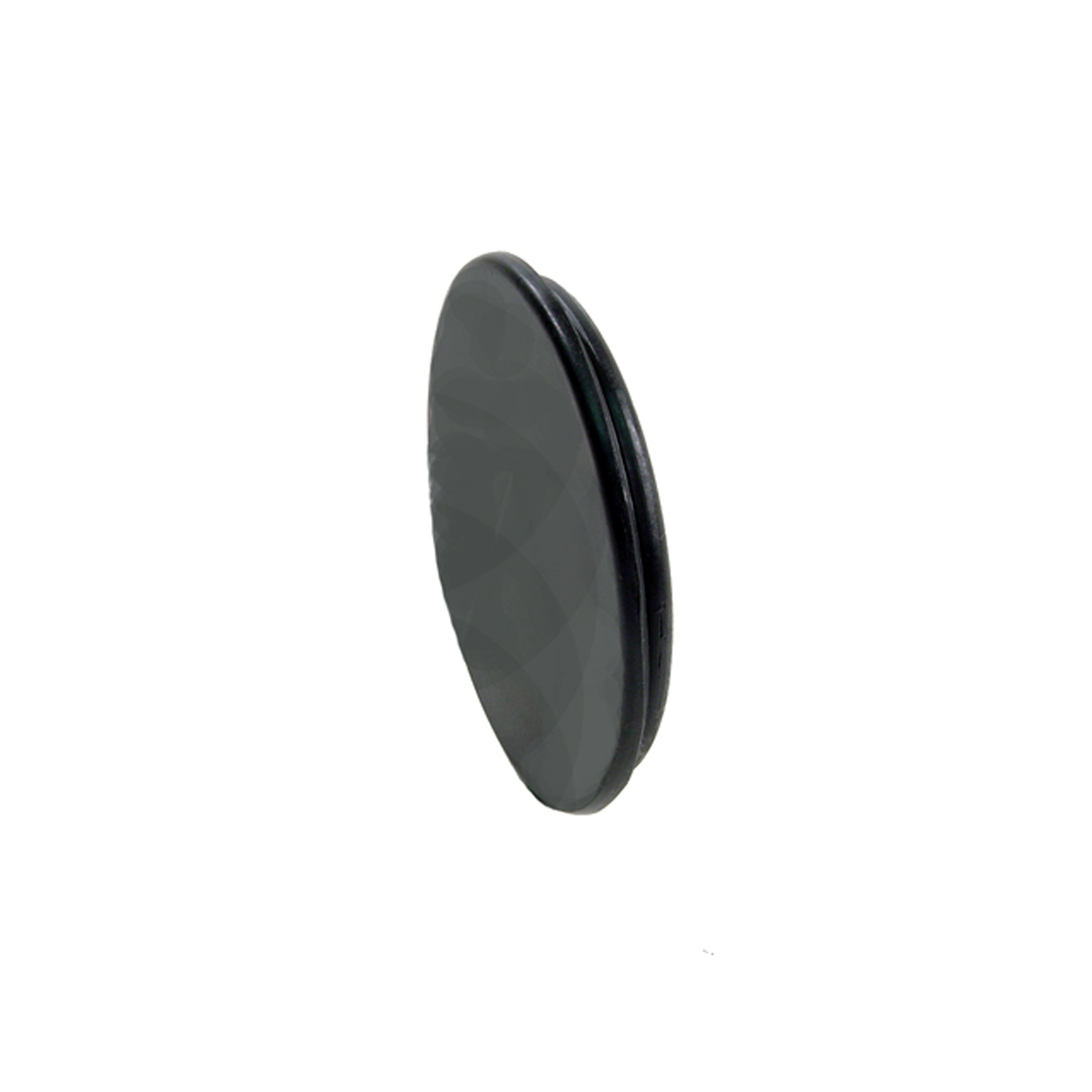 1955 Triumph TR3 Jack Socket Plug. Fits a 2-7/8" hole. Each-RP 91Jack Socket Plug. Fits a 2-7/8" hole. Each
1955 Triumph TR3 Jack Socket Plug. Fits a 2-7/8" hole. Each-RP 91Jack Socket Plug. Fits a 2-7/8" hole. EachWhy Choose Metro?
For over 100 years, Metro Moulded Parts has been the pinnacle of quality in classic car restoration parts. Our commitment to precision and authenticity in every component ensures a perfect fit and an OEM-level appearance.
- Expert Craftsmanship & Quality: Each part is a testament to our dedication to reliability and perfection, crafted from original designs and thoroughly tested.
- Advanced Technology: We use cutting-edge techniques to create flawless, long-lasting parts that surpass others in performance.
- SuperSoft Sponge – The Ultimate Door Seal: Not only are our door seals 30% softer than competitors', but they're also guaranteed to never leak. They effectively reduce wind and road noise, enhancing your classic car's comfort and driving experience.
- Proudly American: Our parts are a product of American craftsmanship, made in the USA with a spirit of excellence and heritage.
- Unrivaled Warranty: We back our products with a 30-year industry-leading warranty, a testament to our confidence in their quality.
Join us in preserving the legacy of classic cars with parts that are crafted for perfection, not just made.

